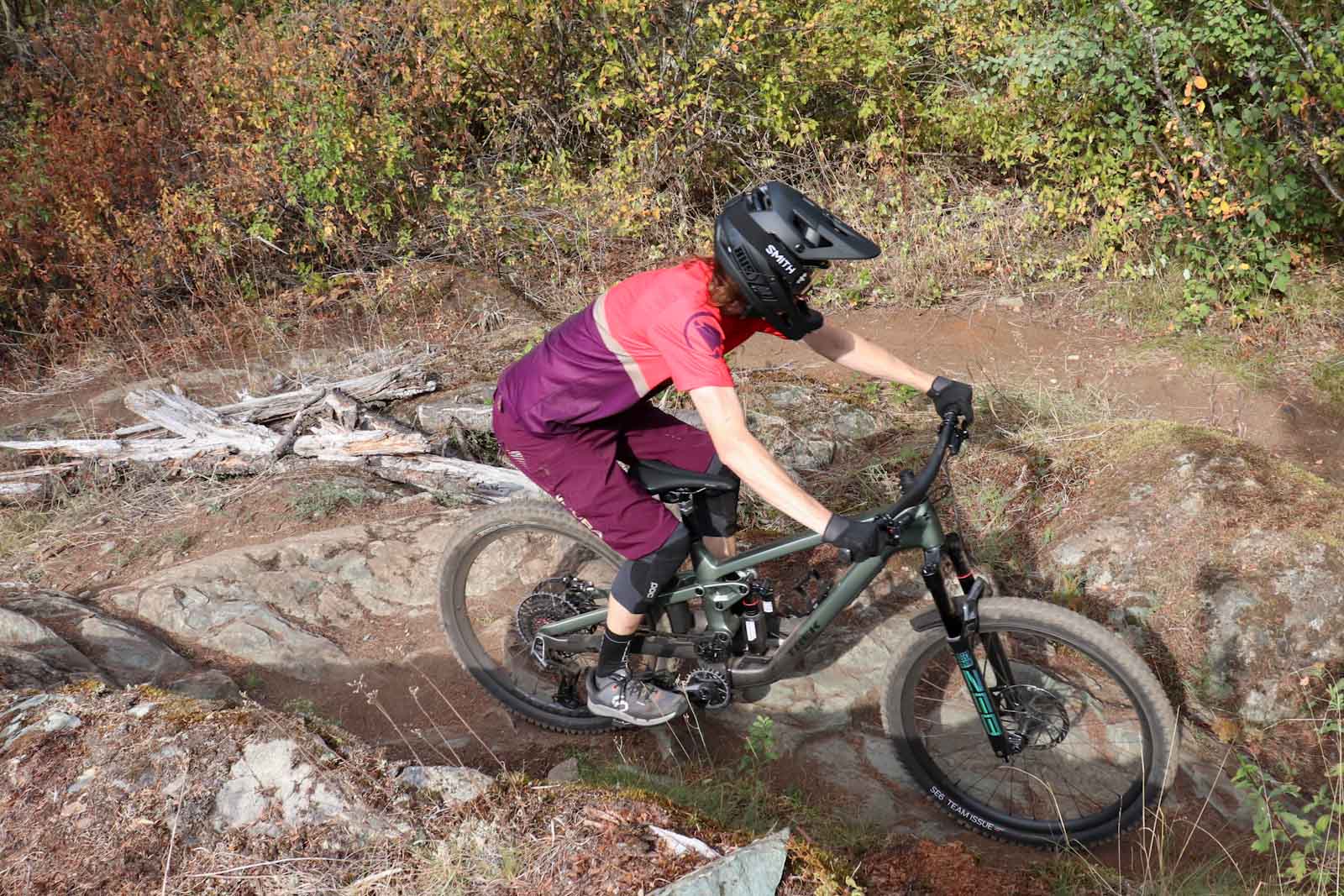Bike park and enduro riding is all the rage in the gravity scene these days. As such, companies like ABUS are creating lighter, more ventilated full-face helmets. Gravity riders need complete head protection, but we can now enjoy that alongside new levels of coolness and comfort with helmets like the AirDrop.
The AirDrop is ABUS’ first full-face MTB helmet, and I’d say they nailed what they were out to achieve. The AirDrop is lightweight, well vented, and very pedal friendly. It also boasts some nifty safety features, including the option to add a crash detecting QUIN sensor.
ABUS AirDrop – Key Construction Features:
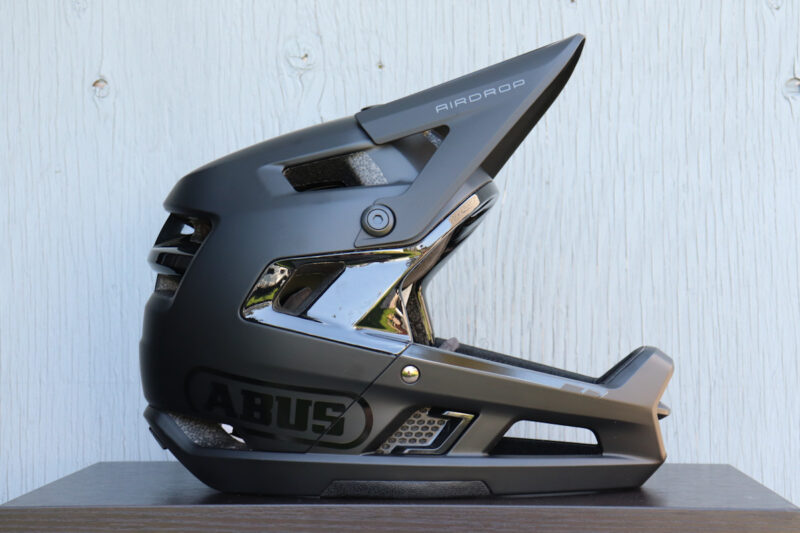
For complete details on the AirDrop full-face helmet, check out my article from this spring. For convenience, here’s a quick rundown on the basic specs and construction features.
The AirDrop’s shell is made using in-mold construction, but ABUS adds their Acticage reinforcements inside the shell. All models come with a MIPS liner, and a Zoom-Ace FF dial retention system to ensure a snug fit.
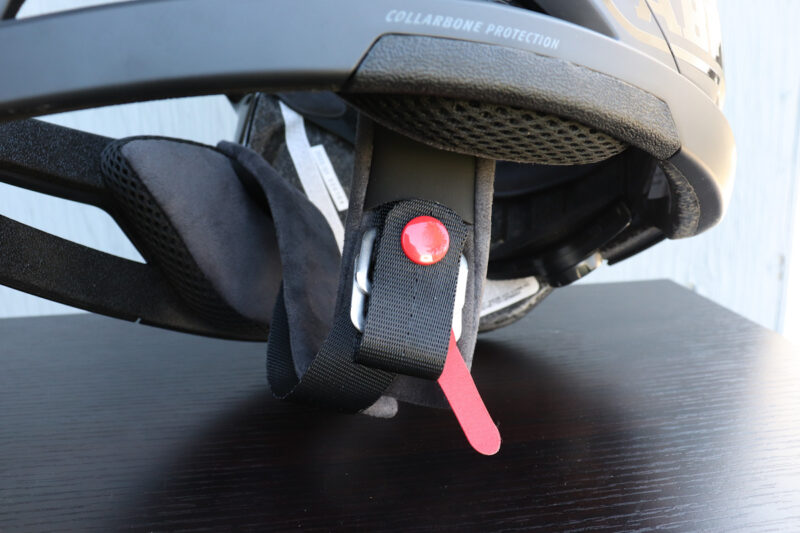
EVA pads on the bottom of the chin bar provide added collarbone protection, and Ambient Sound Channels allow you to hear what’s going on around you. The AirDrop uses a double D-ring chin buckle.
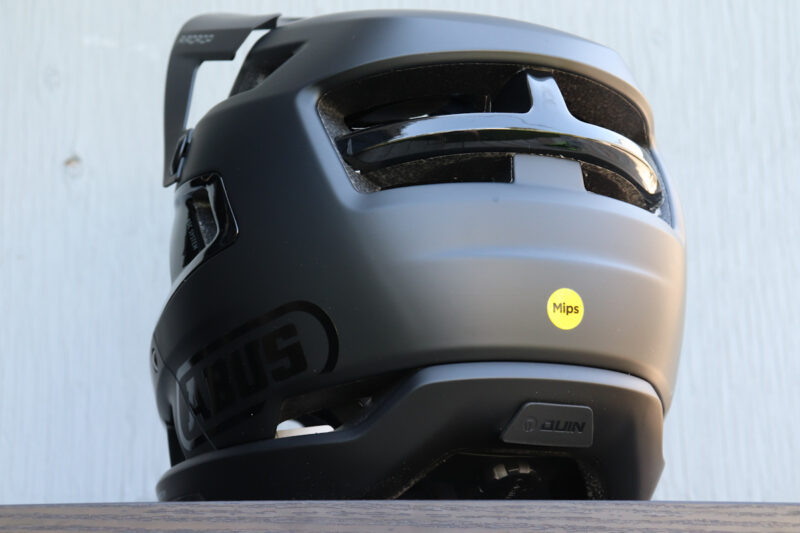
The AirDrop can also host ABUS’ QUIN sensor, which can notify contacts if you crash. It also collects a host of ride stats and metrics. Check out my review of the ABUS MoDrop helmet to learn all about the QUIN sensor’s functions.
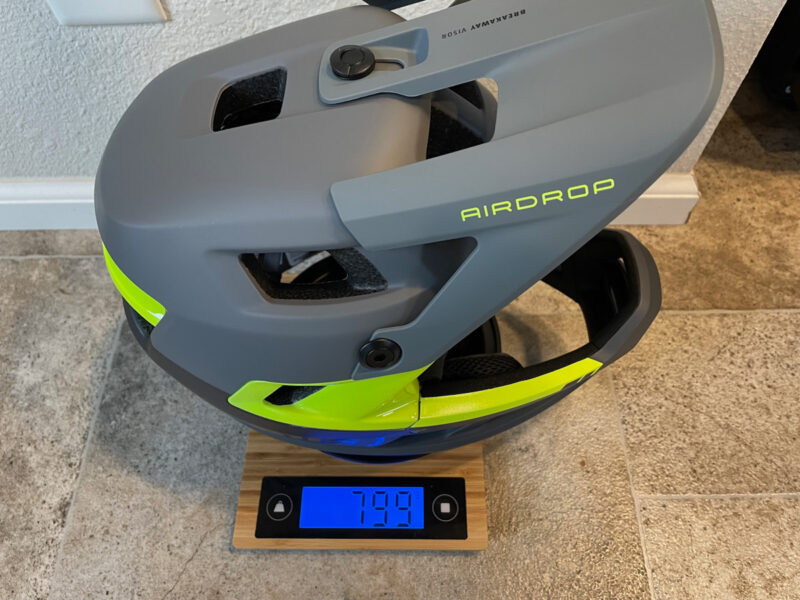
The size S/M AirDrop lists its weight at 770g, but my scale showed 799g.
Ride Impressions:
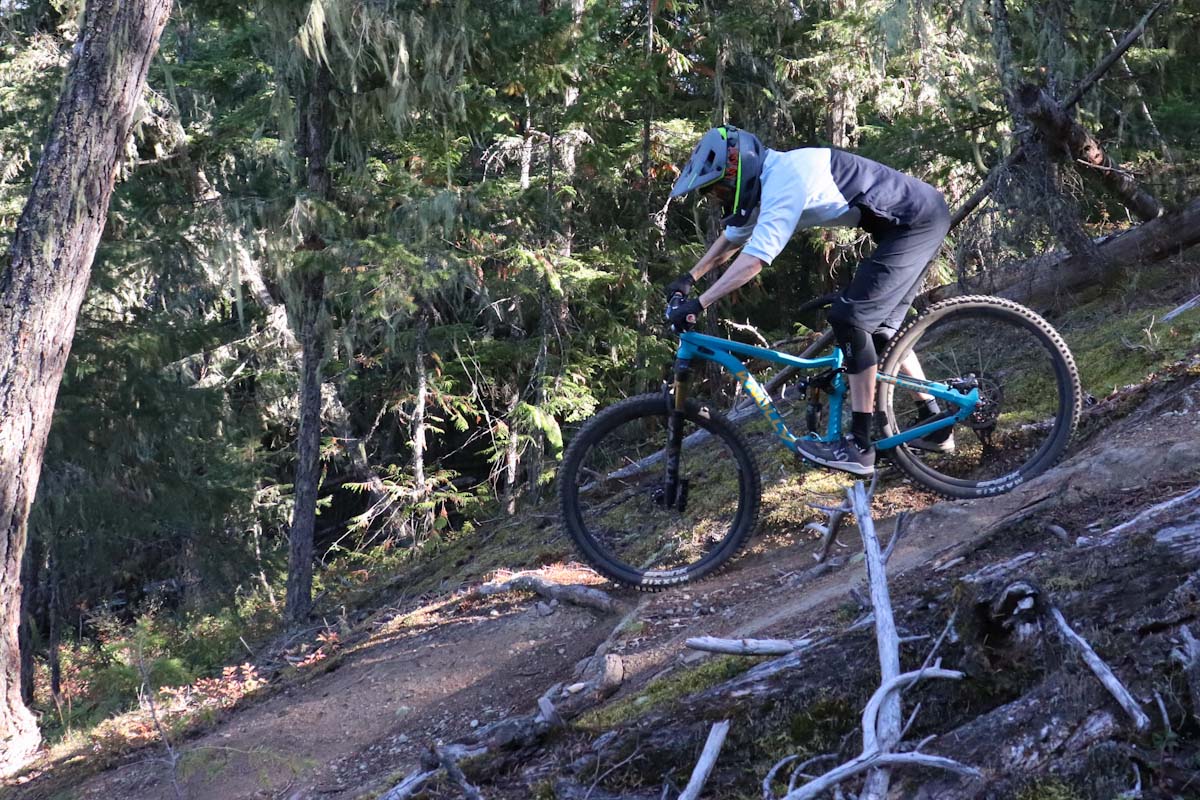
My first ride with the AirDrop was a day in the Whistler Bike Park. The day started off warm at the base of the mountain and cool and breezy at the top of the lift. By the end of the day, it got hot for my last few lower mountain laps.
Right away I can say the AirDrop is one of the lightest and coolest full-face helmets I’ve worn. Airflow is excellent all around my head, and the chin bar barely feels like it’s there. Going up the first lift I was glad it wasn’t cooler out, as the AirDrop was not keeping my head warm like most full-faces do! By the end of the day my head was sweaty, but a lot less sweaty than usual.
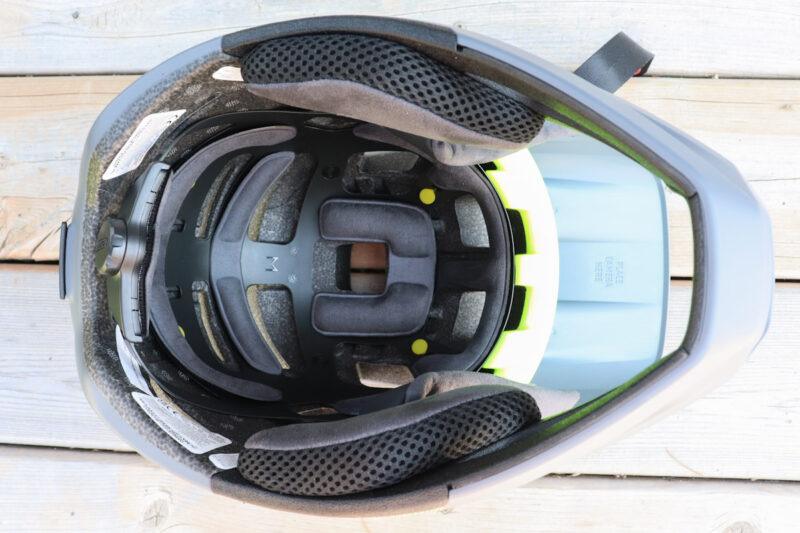
The interior padding is pretty light, but I found the AirDrop perfectly comfortable. Some people might be a bit skeptical about the slim padding for full time DH or park use. Other full face helmets (like Bell’s Full 10) offer more substantial interior padding, but the AirDrop is suitable for bike park or downhill riding. The lighter padding definitely keeps this helmet on the cooler side for pedalling.
I like how ABUS included their Zoom-Ace dial retention system on the AirDrop. It’s easy to dial in a solid fit, and the helmet never wiggled around on my head while riding.
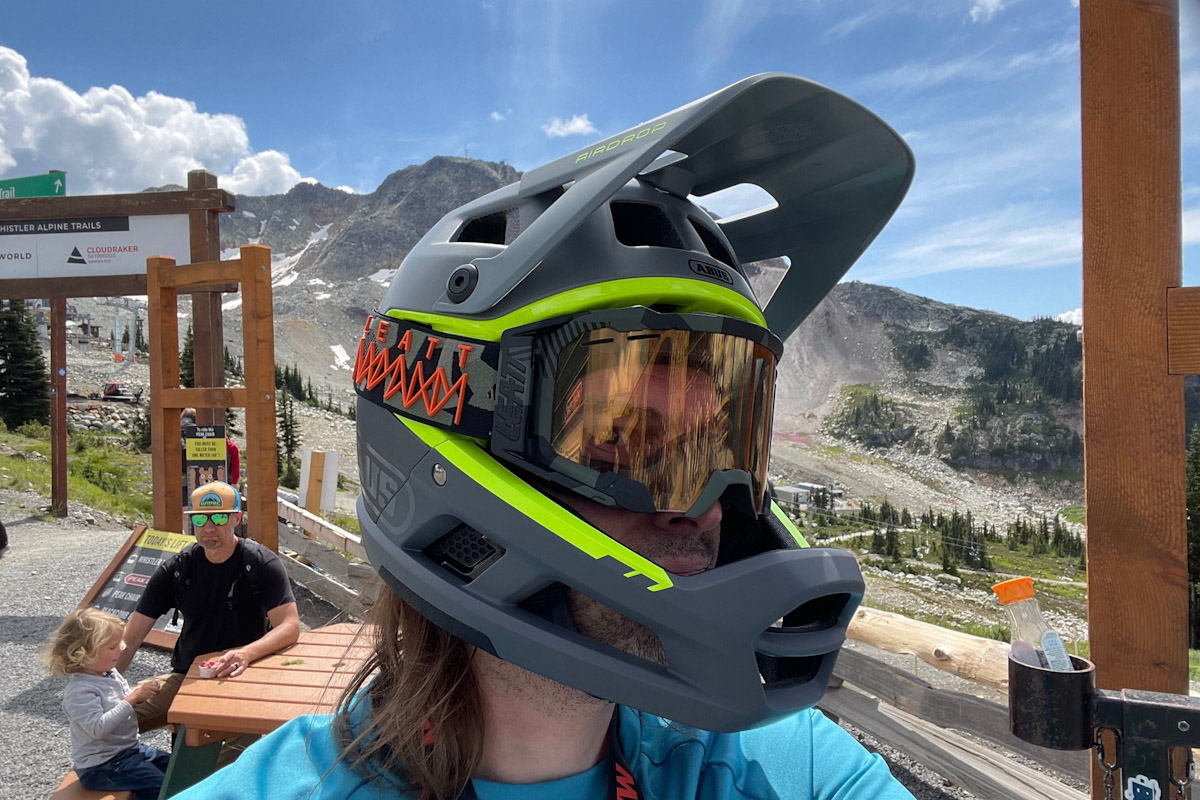
My Smith Squads, my slightly larger 661 Radia goggles and Leatt’s Velocity 5.0 goggles all fit into the AirDrop’s face opening just fine, with no excess pressure on my nose or forehead. I found it easy to get my goggle straps in position, as the helmet’s shell guides them on the sides. The strap does block the lower half of the rear vents but it doesn’t have a noticeable impact on ventilation. Goggle straps do cover the Ambient Sound Channel openings as well, but they still provide better hearing than most full face helmets.
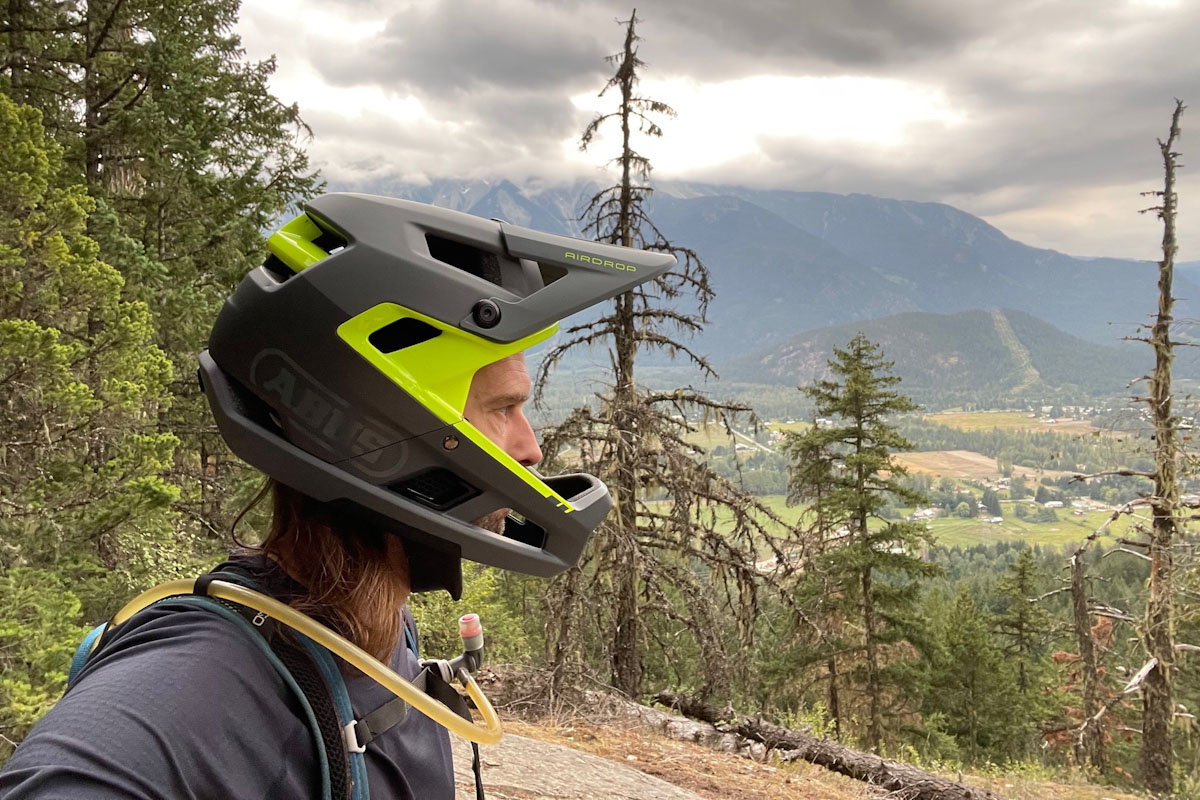
Of course I took the AirDrop out on my local trails, wearing it for the entire ride each time. My head started off staying very cool, as air easily flows through this helmet from any direction. The top of my head felt particularly well vented, and I’d say the AirDrop is almost as cool as an open faced lid…
I only noticed a bit of heat building up inside the shell and under the cheek pads after about 20 minutes of climbing, and when moving at slow speeds or stopped. As soon as you start riding fast or a breeze is blowing, this helmet takes in air like a dream. I found no issues with the chin bar hampering my breathing during climbs.
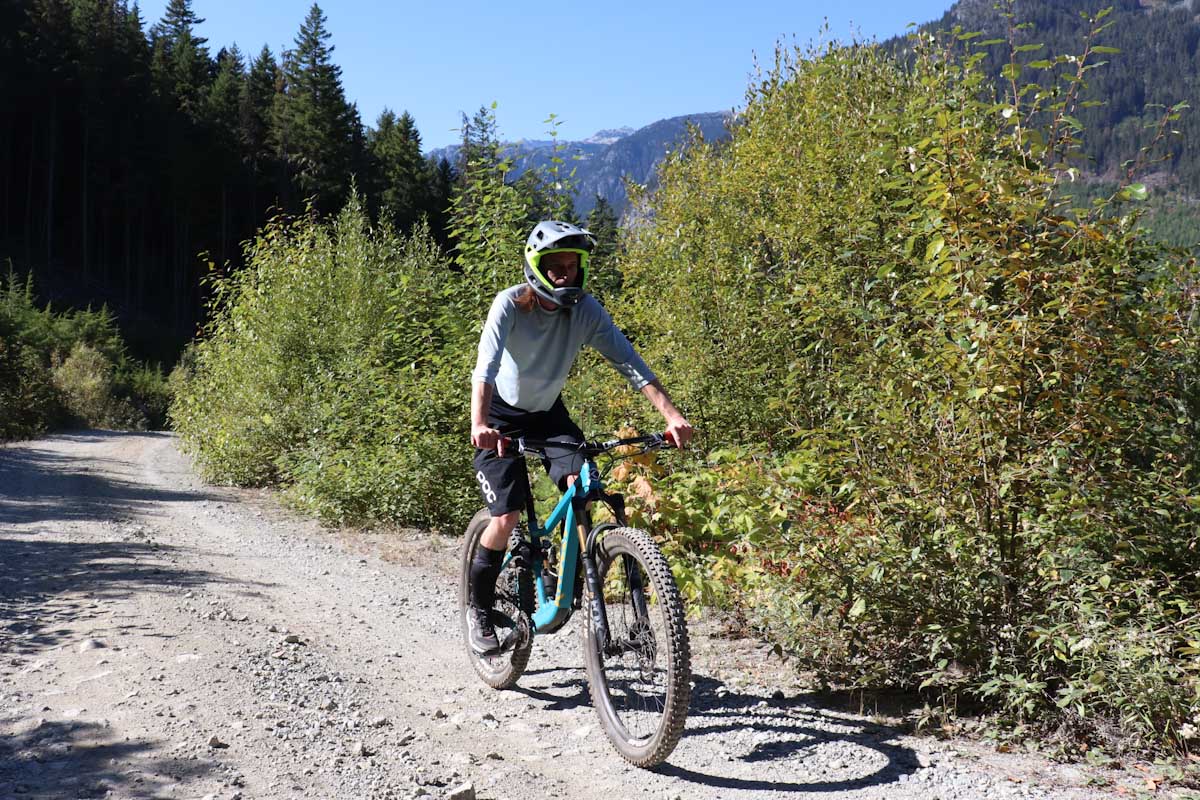
The AirDrop offers an excellent field of view. When climbing (without goggles) side to side vision is hardly limited, and the chin bar sits low enough that it wasn’t distracting while picking lines on the uphills.
On every ride, I kept the AirDrop’s visor in the lowest position. I can just see the peak in my field-of-view, but it did help keep the sun off my face in this setting. The visor’s highest position is intended to leave room for a POV camera. I don’t think ABUS intended for goggle storage on the forehead, as the visor would interfere with the straps.
The MIPS liner did get a bit annoying while climbing, as it creaks with anything more than minor movement. While I don’t think about the creaking during a descent, as my attention is on the trail, I did find it a bit irritating after climbing for a while. I have found this is an inherent issue with MIPS liners.
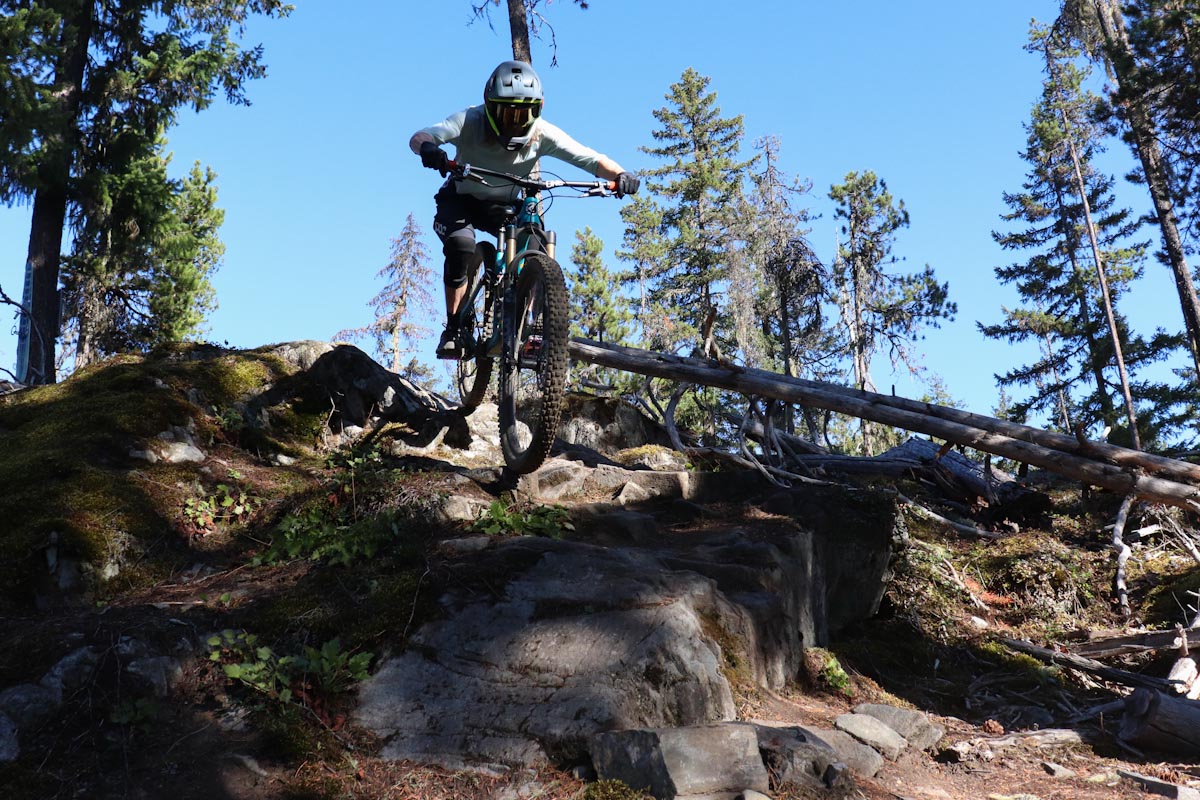
My neck felt a bit of soreness from the full-face’s weight after my trail rides, but I don’t pedal in full-faces often… Realistically, full-faces don’t get much lighter than the AirDrop. My only other minor gripe is the AirDrop’s chin strap button is small and can be fiddly to snap in.
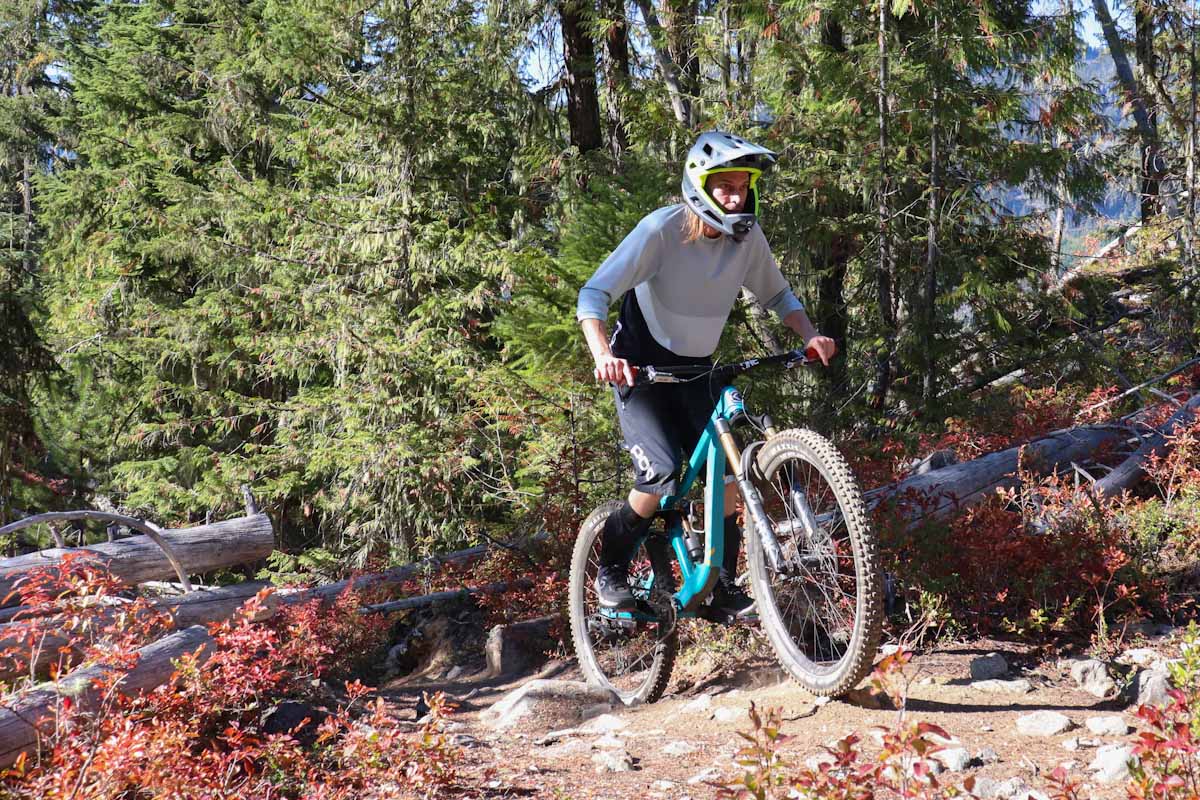
Aside from this helmet, the only other full-face I’ve ridden and would be happy to pedal in is Smith’s Mainline, because it rivals the AirDrop in weight and ventilation.
The AirDrop sells for $299.99, in S/M and L/XL sizes covering heads from 52-62cms. Color options are Concrete Grey/Green, Velvet Black, Black/Gold or Polar White. ABUS’ QUIN sensor is sold separately for $69.99.
